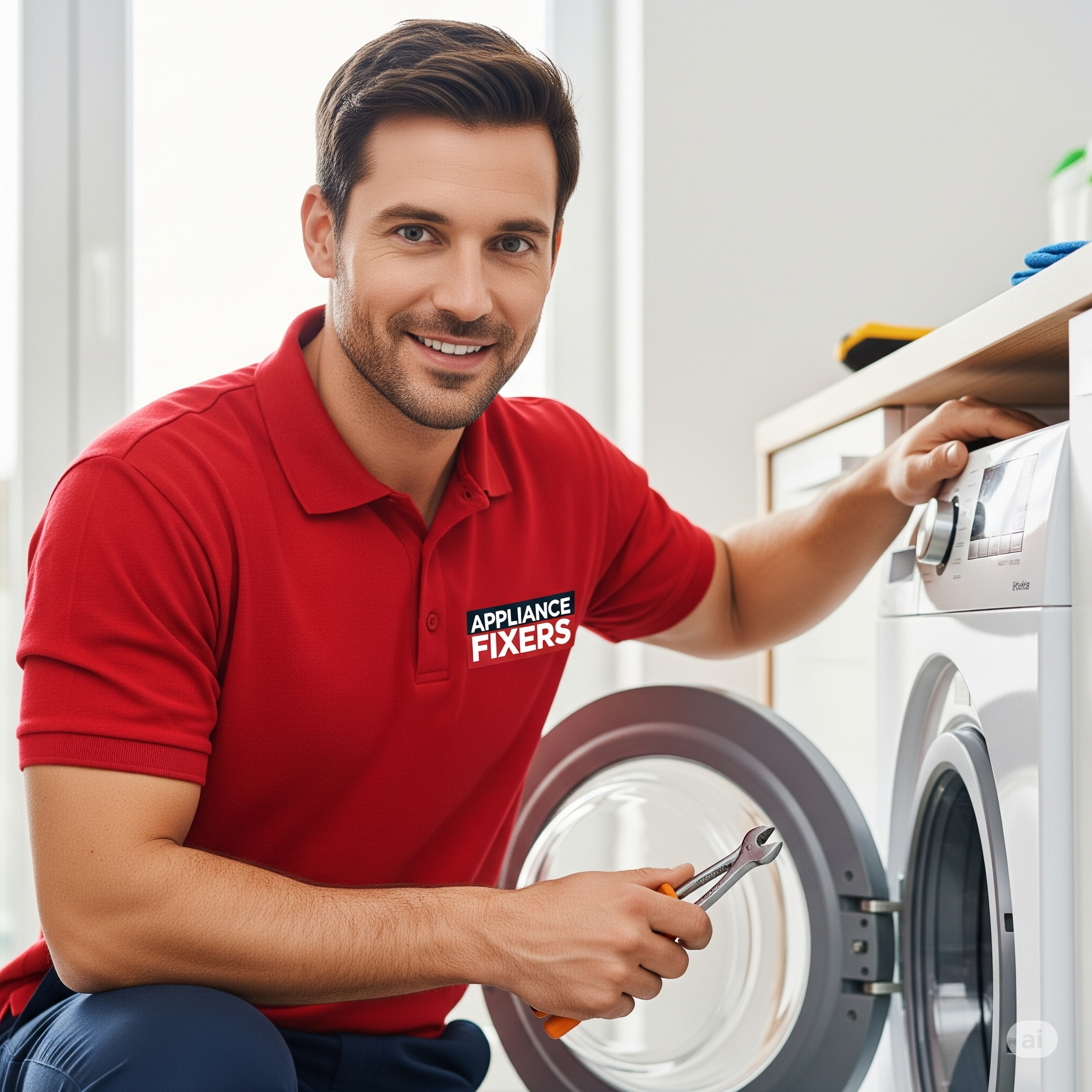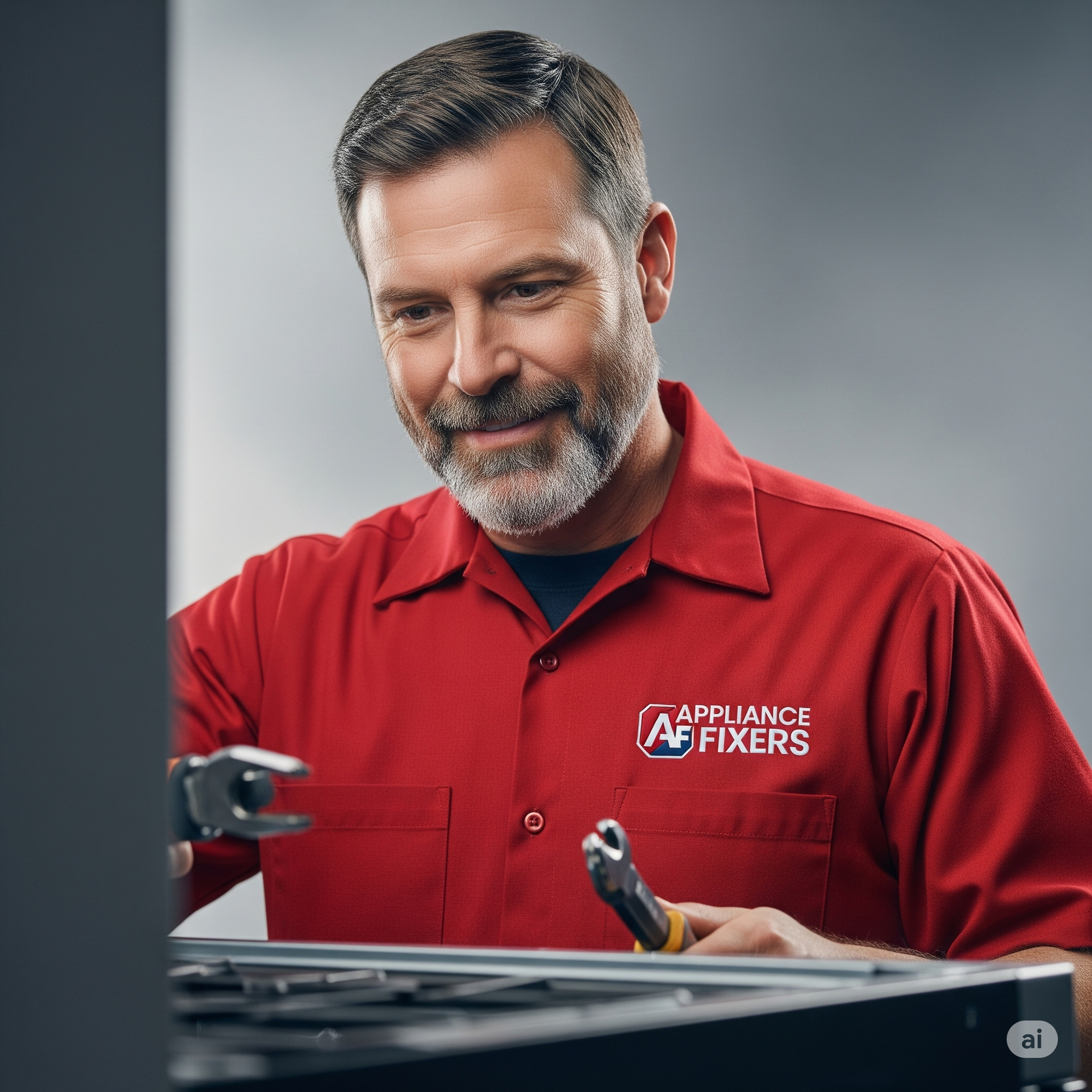Your refrigerator works around the clock, 365 days a year, making it one of the hardest-working appliances in your home. At Appliance Fixers, we’ve seen countless refrigerators that could have lasted decades longer with proper maintenance. Unfortunately, many homeowners don’t realize that a few simple maintenance tasks can prevent costly repairs and extend their refrigerator’s lifespan significantly.
The average refrigerator lasts between 10-20 years, but with proper care, many models can exceed this range while maintaining optimal efficiency. Poor maintenance, on the other hand, can lead to premature failure, higher energy bills, and food spoilage that costs families hundreds of dollars annually. This comprehensive guide will walk you through everything you need to know about maintaining your refrigerator, from daily habits to seasonal deep-cleaning tasks.
Understanding Your Refrigerator’s Key Components
Before diving into maintenance tasks, it’s essential to understand how your refrigerator works and identify its critical components. The refrigeration cycle involves several key parts working together: the compressor, condenser coils, evaporator coils, thermostat, and various fans and motors. Each component plays a crucial role in keeping your food fresh and your energy bills manageable.
The compressor acts as the heart of your refrigerator, pumping refrigerant through the system. The condenser coils, typically located on the back or bottom of your unit, release heat from inside the refrigerator to the surrounding air. The evaporator coils, found inside the freezer compartment, absorb heat from the interior. Understanding these components helps you recognize when something isn’t working correctly and perform targeted maintenance.
Daily and Weekly Maintenance Habits
Proper refrigerator maintenance starts with developing good daily habits. Temperature monitoring is crucial – your refrigerator should maintain a temperature between 35-38°F (1.7-3.3°C), while your freezer should stay at 0°F (-18°C). Invest in an appliance thermometer to monitor these temperatures accurately, as the built-in displays aren’t always precise.
Keep your refrigerator well-organized but not overcrowded. Proper air circulation is essential for efficient cooling, so avoid blocking vents with containers or packages. Leave space between items and don’t pack shelves too tightly. Conversely, an empty refrigerator works harder than a reasonably full one, as stored items help maintain consistent temperatures.
Check door seals regularly by performing the dollar bill test – close a dollar bill in the door and try to pull it out. If it slides out easily, your seals may need cleaning or replacement. Clean spills immediately to prevent odors and bacterial growth, and wipe down shelves weekly with a mild soap solution.
Monthly Deep Cleaning Tasks
Once a month, dedicate time to more thorough refrigerator maintenance. Start by cleaning the interior thoroughly. Remove all items, including removable shelves and drawers. Wash these components in warm, soapy water and allow them to air dry completely before reinstalling.
Clean the interior walls with a solution of two tablespoons of baking soda mixed with one quart of warm water. This natural cleaner eliminates odors without leaving harmful residues that could contaminate food. Pay special attention to corners, crevices, and the areas around door seals where spills and crumbs commonly accumulate.
Don’t forget about the drip pan, located beneath your refrigerator. This often-overlooked component collects condensation and can harbor bacteria and odors if not cleaned regularly. Carefully remove and wash it with warm, soapy water, ensuring it’s completely dry before replacing it.
Condenser Coil Maintenance: The Most Critical Task
Cleaning your condenser coils is perhaps the most important maintenance task for your refrigerator’s longevity and efficiency. Dirty coils force your compressor to work harder, leading to higher energy consumption and premature wear. Most refrigerators require coil cleaning every six months, though homes with pets or high dust levels may need more frequent attention.
Before beginning, unplug your refrigerator and locate the condenser coils. In newer models, they’re typically on the back of the unit, while older models often have them underneath, behind a removable panel. Use a coil brush or vacuum with a brush attachment to gently remove dust, pet hair, and debris. Work carefully to avoid damaging the delicate fins on the coils.
For heavily soiled coils, you may need to use a specialized coil cleaner. These products help dissolve grease and stubborn debris that regular cleaning can’t remove. Always follow manufacturer instructions and ensure the area is well-ventilated when using chemical cleaners.
Seasonal Maintenance and Professional Inspections
Different seasons bring unique challenges for refrigerator maintenance. Summer heat makes your refrigerator work harder, so ensure adequate ventilation around the unit and consider cleaning coils more frequently. Winter’s dry air can affect door seals, making them more brittle and prone to cracking.
Spring and fall are ideal times for comprehensive maintenance checks. Inspect all seals for cracks or tears, test the defrost system, and check that interior lights are working properly. Listen to your refrigerator’s operation – unusual noises often indicate developing problems that are easier and less expensive to address early.
Consider scheduling professional maintenance annually, especially for older units or if you’ve noticed performance issues. Professional technicians can perform comprehensive diagnostics, check refrigerant levels, test all electrical components, and identify potential problems before they become costly repairs.
Troubleshooting Common Issues
Understanding common refrigerator problems helps you determine when you can handle repairs yourself and when to call professionals. If your refrigerator isn’t cooling properly, first check the temperature settings and ensure vents aren’t blocked. Clean condenser coils and check door seals before assuming a major component failure.
Excessive noise often indicates dirty condenser coils, a failing compressor, or worn fan motors. While cleaning can resolve some noise issues, persistent loud sounds usually require professional attention. Water leaks commonly result from clogged defrost drains or damaged door seals – both issues homeowners can often address themselves.
Frost buildup in freezers typically indicates door seal problems or a malfunctioning defrost system. Manual defrost freezers require regular defrosting, while automatic systems may need professional repair if frost accumulates excessively.
Energy Efficiency and Cost Savings
Proper maintenance significantly impacts your refrigerator’s energy efficiency. A well-maintained refrigerator uses 15-25% less energy than a neglected one, translating to substantial savings on utility bills. Clean condenser coils alone can improve efficiency by up to 30%, while proper temperature settings prevent unnecessary energy consumption.
Consider upgrading to ENERGY STAR certified models if your current refrigerator is over 15 years old. Modern refrigerators are significantly more efficient than older models, and the energy savings often justify the replacement cost within a few years.
When to Call Appliance Fixers
While many maintenance tasks are DIY-friendly, certain situations require professional expertise. Call us immediately if you notice refrigerant leaks (indicated by hissing sounds or oil spots), electrical issues, or complete cooling failure. These problems can worsen quickly and potentially damage stored food.
At Appliance Fixers, we recommend professional service calls if your refrigerator is over ten years old and experiencing multiple issues, if energy bills have increased significantly without explanation, or if you’re uncomfortable performing any maintenance tasks yourself. Our experienced technicians can restore your refrigerator’s efficiency and help you avoid costly premature replacement.
Conclusion
Regular refrigerator maintenance is an investment in your appliance’s longevity, your family’s food safety, and your household budget. By following this comprehensive maintenance schedule and addressing issues promptly, you can expect years of reliable service from your refrigerator while minimizing energy costs and repair expenses.
Remember that consistency is key – monthly cleaning and seasonal inspections are far more effective than sporadic intensive maintenance. When in doubt, contact Appliance Fixers for professional guidance and service. Our goal is to help you get the maximum lifespan and efficiency from your appliances while keeping your family’s food fresh and safe.



